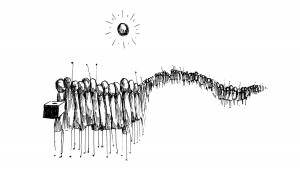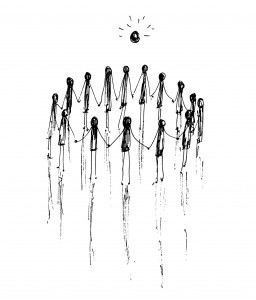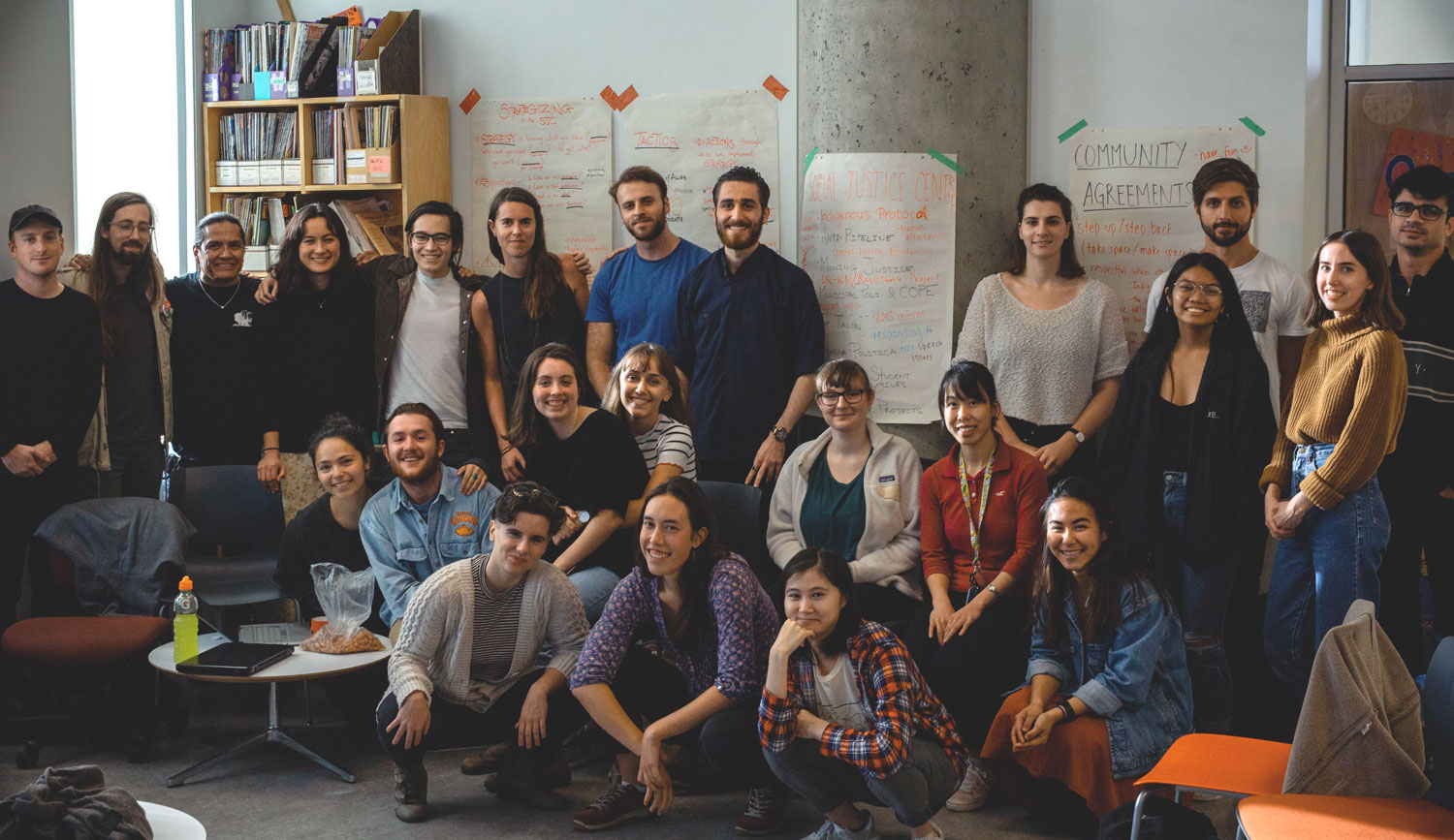The Social Justice Centre grabbed the attention of many at UBC at the beginning of this academic year with the little handbooks they were passing around, titled “Resisting the University: An Alternative Orientation.” According to Gabby Doebeli, one of the co-chairs of the student club, the handbooks are part of a broader mission to reframe the conversation around social justice initiatives. “I feel like common narratives around social justice are that we’re just angry people who are fighting and raising their fists. This handbook is really trying to reinvigorate old traditions and the space [..] to allow us to re-centre and focus on what we actually want to see in the world, rather than just resisting or reacting to things.”
The group has existed as a resource centre at UBC since the events of the 1997 APEC summit, wherein the RCMP was found to have employed excessive force on students protesting the presence of autocratic leaders. “Out of the protests came a movement to fix some institutional shell of an organization that would, into the future, pool resources of students and have those be accessible to students, in terms of organizing, movement building and social justice,” says Jacob Fischer-Schmidt, the group’s other co-chair.

The SJC describe themselves as idealists who centre around anti-oppressive, decolonial, feminist and radical imaginings, and with this comes a broader frame of reference to tackle issues and provide students with a safe campus. Aside from providing resources, they also do their own organizing around issues members are interested in, such as the recent “B-Line and Bike to the Ballot” event they hosted to bring students together and vote in the municipal election.
A big focus of the group is community building: within the SJC and the UBC campus, but also more generally across Vancouver and the unceded, ancestral Indigenous land on which it is situated. “From my impression, campus is like a bubble that exists outside of Vancouver,” Gabby tells me, “so my intention with the handbook was to break that bubble and situate people who are coming from all over the world and ground them in relationships to the different people, organizations, clubs and to the land that they’re on.”
Going beyond that, they also want to be a space where people feel like they belong, can find others with similar ideas, and build collective power to work towards those ideas. “I see [the SJC] as something that has potential as a networking piece that connects a lot of the different movements and initiatives on campus. […] We’ve been thinking of ways that we can provide students with resources that are not just financial — like a community where they feel their ideas around social justice can be expressed, shared, acted on,” Jacob expresses.

The SJC’s community focus is also apparent in the organization’s structure. They’re proud of the group’s non-hierarchical nature, which aims to create a genuine, safe environment where everyone has equal say, and where your say is respected. The structure takes into consideration how many marginalized folks don’t have a great relationship with authority and may find it intimidating or inaccessible to speak out for themselves. “The resource groups are a space especially for marginalized folks, so it’s really important to organize this way,” says Gabby. The only thing co-chairs are mandated to do is call meetings and ensure they are taking place, and they often help to initiate or guide the conversation during the meetings. “We try to envision ourselves as a group that is critical of the existing status quo and critical of legitimacies that power structures claim. We definitely see a lot of things that could change in the world, and it’s important for us to be enacting and practicing the change that we want to see,” Jacob continues.
The co-chairs mention that over the past couple of years turnout has been low, which has led to the group performing with reduced capacity. They are hoping to revive the conversation around the potential of social justice practices, and welcome new people into their weekly meetings. If you’re ever free and on campus on a Thursday evening, you’re more than welcome to come to Room 2108 in the AMS Student Nest and join in on the discussion of what our futures should look like.


